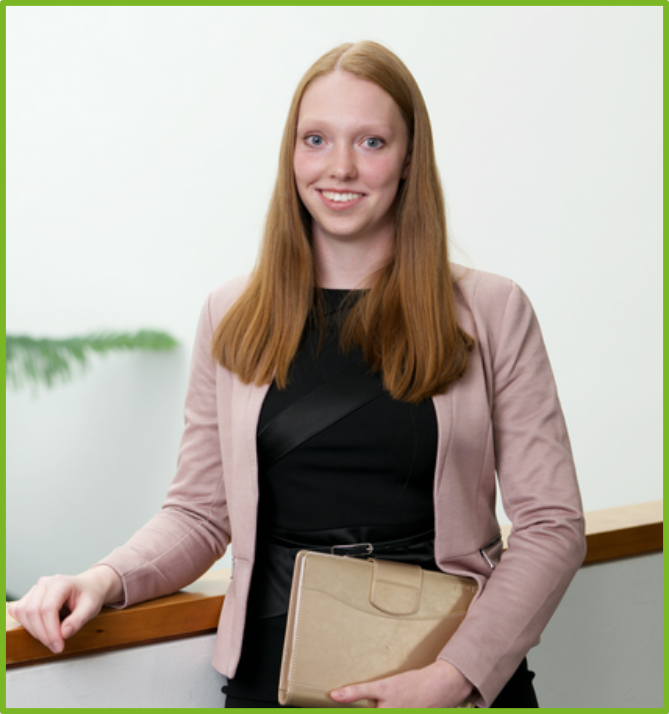About Carolin Müller

Carolins academic journey began at Friedrich Schiller University Jena, where she earned her Master of Science degree in chemistry in 2018. From 2018 to 2021, she delved into her doctoral studies at the same university, guided by Benjamin Dietzek-Ivanšić. After completing her doctorate, she spent a year as a postdoctoral researcher with Benjamin Dietzek-Ivanšić. Afterwards she moved to the University of Luxembourg, where she joined the Theoretical Chemical Physics group, led by Alexandre Tkatchenko, as a Feodor Lynen Postdoctoral researcher of the Alexander von Humboldt Foundation in June 2022. In November 2023, she joined the FAU Erlangen-Nürnberg as Assistant Professor for the Theory of Electronically Excited States.
Her research is about exploring the fascinating world of light-induced processes in chemistry, from the lively dance of electrons to the magical transformation of molecules. Her main focus is on generating, analysing, and archiving data related to excited states. To accomplish this, she blends the tools of quantum chemistry, chemoinformatics, and spectroscopy into a dynamic team to unlock the secrets behind these impressive light-driven phenomena.
| since 11/2023 | Juniorprofessor for the Theory of Electronically Excited States, Friedrich-Alexander-University Erlangen-Nuremberg, Germany |
| 06/2022-10/2023 | Feodor Lynen Postdoctoral Researcher, University of Luxembourg, Luxembourg |
| 03/2021-05/2022 | Postdoctoral Researcher, Friedrich Schiller University Jena, Germany |
| 09/2018-02/2021 | Dissertation (Dr. rer. nat), Friedrich Schiller University Jena, Germany Thesis: Towards Operando Spectroscopy of Supramolecular Photocatalysts – A Case Study on Ru-dppz-derived Systems |
| 08/2020 | Research Stay, Lund University, Sweden |
| 10/2016-09/2018 | M. Sc. in Chemistry, Friedrich Schiller University Jena, Germany |
| 02/2018-08/2018 | Research Stay, Dublin City University, Ireland |
| 10/2013-09/2016 | B. Sc. in Chemistry, Friedrich Schiller University Jena, Germany |
| 06/2022 – 10/2023 | Feodor Lynen Research Fellowship, Alexander von Humboldt Foundation |
| 04/2023 | Thuringian Research Award 2023 (Applied Research), Federal State of Thuringia (Thüringer Ministerium für Wirtschaft, Wissenschaft und Digitale Gesellschaft) |
| 09/2022 | Albert-Weller Award, German Chemical Society (GDCh, Division of Photochemistry) and the German Bunsen Society for Physical Chemistry (DBG) |
| 06/2022 | Dissertation Award, Faculty of Chemistry and Earth Sciences, Friedrich Schiller University Jena |
| 05/2019 – 02/2021 | FCI Kekulé PhD fellowship, Fonds der Chemischen Industrie |
-
Excited-state phenomena: Unraveling structure-property relationships across dimensions
(Third Party Funds Group – Sub project)
Overall project: SFB 1719: Next-generation printed semiconductors: Atomic-level engineering via molecular surface chemistry
Project leader:
Term: 1. October 2025 - 30. June 2029
Acronym: SFB 1719 M02
Funding source: DFG / Sonderforschungsbereich (SFB)Project M2 is devoted to the development and application of approaches to elucidate and predict excited state phenomena in aggregates of varying numbers of atoms and molecules. This includes studying model systems throughout the molecular precursor-to-material pathway, from individual atoms and molecules to aggregates and extended systems such as two-dimensional (2D) materials on different length-scales (e.g., monolayers or multilayers), assembled molecules (e.g., dimers or monolayers), and molecules adsorbed or covalently bonded on surfaces. The primary focus will be on transition metal dichalcogenides, V-VI chalcogenides, and perovskites for materials, and photoswitches for molecular systems. To address this challenge, we will use a combination of ab initio quantum chemical methods, such as time-dependent density functional theory and many-body perturbation theory, along with data science techniques. This approach will help us to explore structure- and size-dependent properties of excited state phenomena, including electronic absorption and emission spectra and the yield and rate of certain photoinduced processes. The developed procedures will be critically validated through close collaboration with experimental spectroscopic projects, reinforcing our understanding of how certain structures determine the excited state properties of materials.
-
Navigating the Odyssey of Photochemistry: Charting Efficient Strategies for the Prediction and Optimization of Light-Induced Triplet Energy Transfer Reactions
(Third Party Funds Single)
Project leader:
Term: 1. February 2025 - 31. January 2031
Acronym: HRCD 2024
Funding source: Stiftungen
URL: https://hector-fellow-academy.de/spitzenforschung/hector-rcd-awardees/carolin-mueller/ -
PRISM: Photochemical Rules and Insights for Systematic Modeling
(FAU Funds)
Project leader:
Term: 1. December 2024 - 31. December 2025
Acronym: EAM-SG24-01 -
Eco-PhotoCompute - Crafting Sustainable Strategies for Computational Photochemistry
(FAU Funds)
Project leader:
Term: 15. July 2024 - 15. July 2025
Acronym: ETI-Förderung 2024-2_Nat_09_Mueller
| since 2023 | TeX User Group (TUG) |
| since 2022 | German Bunsen Society for Physical Chemistry e.V. (DBG) and Young Physical Chemists (yPC) of the DBG |
| since 2013 | Gesellschaft Deutscher Chemiker (GDCh) |
